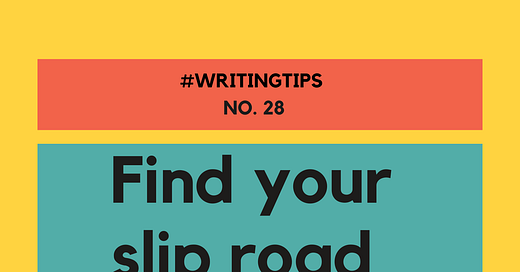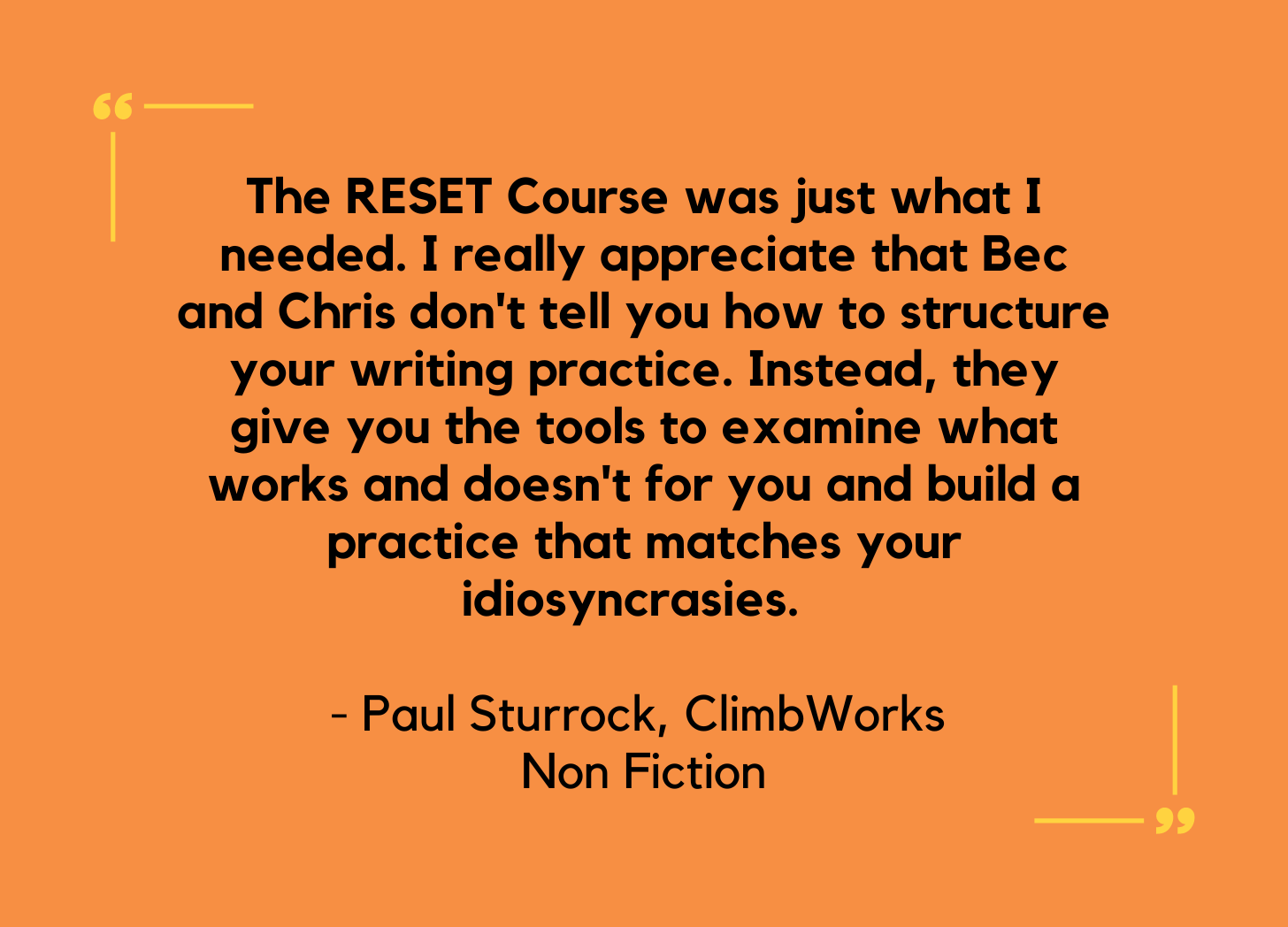Tip 28: Find your slip road
A procrastination-busting tip inspired by one of our favourite podcasts, No Stupid Questions.
Hello, Chris here,
I love the podcast No Stupid Questions hosted by Angela Duckworth of Grit fame and partner in crime Mike Maughan. Towards the end of a show about conscientiousness (26 mins in), the presenters chat about why they procrastinate on some tasks and not others and how you can use the concept of an ‘on-ramp’ to help you do things you might be avoiding.
I think it applies so well to writing so I thought I’d share and expand on the idea a little. Let me explain!
Life in the fast lane
In the US they’re called ‘on ramps’ while in the UK they’re called ‘slip roads’. Either way they’re normally, a short road you use to get to the usually fast moving motorway/highway/freeway/autobahn - depending on your location. A slip road isn’t the main road, it’s the thing that helps you get to the main road. It’s the thing that helps you pick up speed and join the carriageway at the right pace.
Writers often want to go too fast, too soon. They have big ambitions and so, give themselves big goals to meet. There’s nothing wrong with being ambitious - but not when it leads to overwhelm, procrastination and avoidance.1 You’d never simply turn on to a motorway (unless you are leaving Malaga airport in an hired Fiat Punto and misread the road signs - note to self, don’t do this again 😬), you’d use the slip road first. It’s the same with writing.
Writing the book that I’m writing now is SO HARD [caps mine]. I think it’s shaving years off my life. There are many times that when I bring to mind that I have to write chapter eight and I think - ugh! It’s like putting a 40-pound weight on my shoulders – but I could draw my intention to something on my task list that’s either fun or easy or otherwise appealing – it’s like a trick.
- Angela Duckworth, show host and Prof. of Psychology at the University of Pennsylvania.
4 ways to trick yourself into writing
When it comes to writing, finding your slip road means reframing how you approach your writing and drawing your attention to any aspect of the writing that doesn’t fill you with dread. For example:2
Focus on the time not the task: Make your goal ‘write for an hour’ not ‘fix thorny chapter X’ - then just see how it goes.
Try morning pages or free writing: Get warmed up before you hit the main project. Both approaches can be an easy and fun way to get started.
Make your goal smaller: Don’t take on too much, write a sentence, a paragraph, write for 20 minutes - you can always write more or for longer later on.
Use constraints: Write against the clock, use the Pomodoro Technique, these are great ways to add a little gentle pressure and stop you from feeling overwhelmed.
There are always going to be aspects of the writing that you don’t want to do – use the slip road idea as a way to sidle up to the writing and get going.
So, what’s your personal slip road - or what could it be? What tactics do you use to trick yourself into writing? We’d love to know :)
Take care,
Chris
PS. If you like this post, we’d be so grateful if you could leave us a ❤️ or share it with another writer in your life. Thank you!
Writing RESET: Grab your place now!
Act fast if you want a spot on our Summer Writing RESET — time's ticking! 🕒
With personalised coaching from Bec and Chris, our RESET course is your ticket to unlocking a writing routine tailored to your life.
Got a project begging for completion? Don't hesitate, join us now! We can’t wait to welcome you aboard. 📝
The temptation to ‘go large’ with a writing goal or ambition is very human but doesn’t always lead to action. We want to feel that our goals are exciting rather than hum drum but as the social scientist and habits expert B.J. Fogg says, motivation is like our ‘fickle friend’ - it feels good in the moment but is terrible for sustaining a habit. And a habit is exactly what you need if you need to get a writing project of any length actually written.
These tips are a combination of our own tried and tested approaches and those given in the episode.









Well, a bad writing day is thinking I'm entering an on-ramp and discovering it is a round-about. After finding I'm writing in circles, I have to pull over and ask my writer self, "Where, exactly, am I going?"
If I "don't feel" like writing, I'll journal about how I would like to feel about and during writing and imagining that in my body while I'm writing. That helps me move into the "mood" for writing.
If I'm feeling stuck, I'll do my time writing about why I'm feeling stuck, my doubts about where I am, and getting out mt "what-if's" for alternatives.